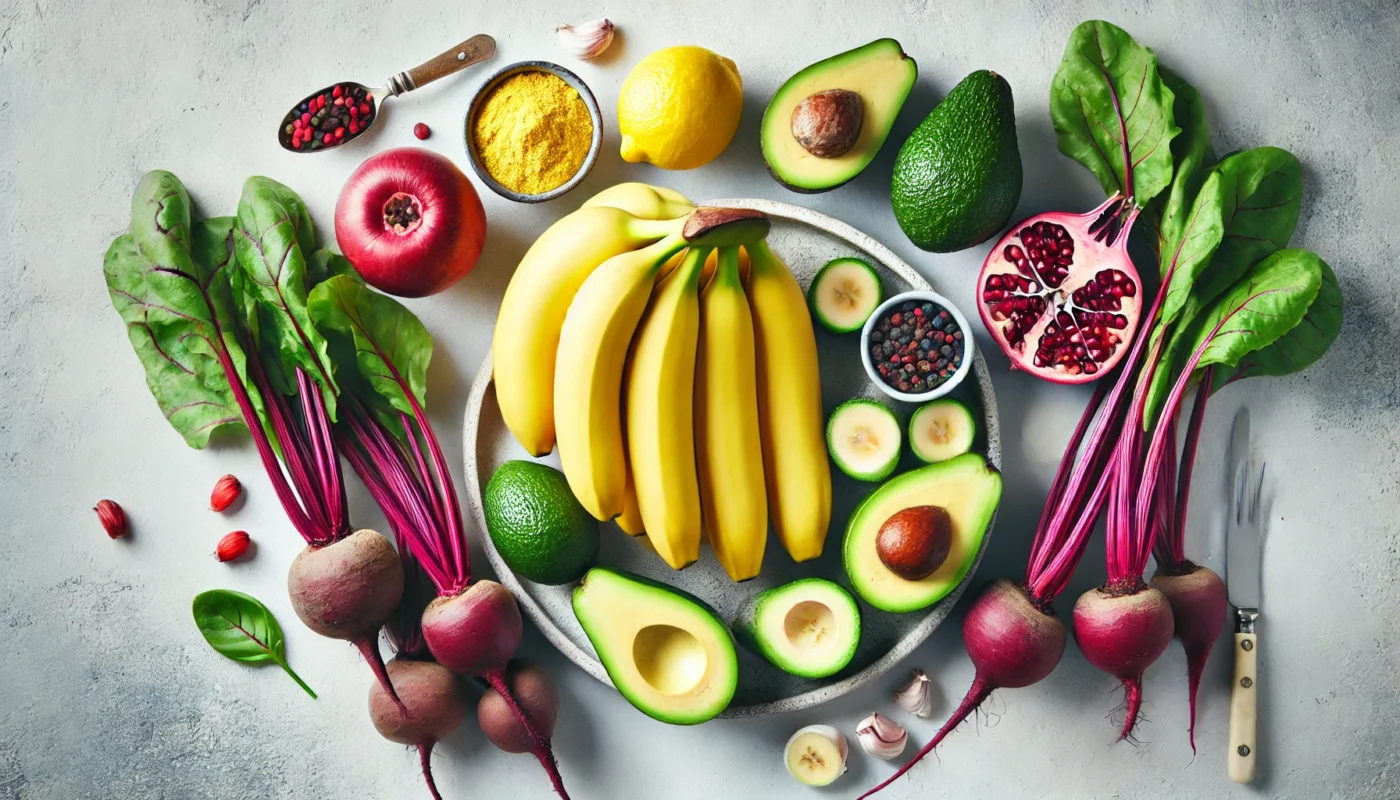Foot swelling, medically known as edema, can be attributed to various factors, each requiring a tailored approach for management. Understanding these causes can significantly impact the effectiveness of dietary and lifestyle interventions.
Edema: The Medical Perspective
Edema is a condition characterized by an excess of watery fluid collecting in the cavities or tissues of the body. This fluid retention often manifests in the feet and ankles due to gravity. While mild edema can be a normal response to prolonged standing or pregnancy, chronic edema may indicate underlying health issues like kidney disease, heart failure, or liver problems. Understanding the medical basis of edema is crucial for determining the appropriate dietary and lifestyle changes necessary for relief.
The Role of Sodium in Fluid Retention
High sodium intake is a significant contributor to fluid retention and swelling in the body. Sodium, found abundantly in processed foods, can disrupt the delicate balance of electrolytes and increase the body’s water retention. This effect is particularly pronounced in individuals with hypertension or those sensitive to sodium. By understanding the impact of sodium on your body, you can make informed choices to reduce swelling and promote better health.
Lack of Movement and Its Impact
Sedentary lifestyles can exacerbate foot swelling due to poor circulation. When we sit or stand in one position for extended periods, blood flow to the legs is reduced, causing fluid to pool in the lower extremities. Regular movement, even simple activities like walking or stretching, can enhance circulation and reduce the risk of swelling. Recognizing the importance of physical activity is a vital step in managing foot swelling effectively.
Medications and Health Conditions
Certain medications, such as those for high blood pressure or diabetes, can contribute to fluid retention as a side effect. Additionally, underlying health conditions like venous insufficiency or thyroid disorders can cause or worsen swelling. Being aware of these potential contributors allows for a more holistic approach to managing foot swelling, incorporating both dietary adjustments and medical guidance.
You May Also Like: Managing Pain Through Dietary Choices

Foods That Reduce Foot Inflammation
Diet plays a pivotal role in managing inflammation and fluid retention. Certain foods are particularly beneficial in reducing foot swelling due to their nutrient content and health properties.
Leafy Greens: Nature’s Diuretics
Leafy greens such as spinach, kale, and Swiss chard are rich in magnesium, a mineral that plays a vital role in fluid regulation within the body. Magnesium helps balance sodium levels, reducing fluid retention and inflammation. Including a serving of these greens in your daily diet can significantly impact swelling. Beyond magnesium, leafy greens also provide fiber and antioxidants, which support overall cardiovascular health and further aid in reducing swelling.
Berries: Antioxidant Powerhouses
Berries, including blueberries, strawberries, and raspberries, are packed with antioxidants and flavonoids. These compounds help reduce inflammation and improve circulation, which can alleviate swelling in the feet and ankles. Additionally, berries are low in calories and high in fiber, making them an excellent choice for overall health. Regular consumption of berries can also enhance immune function and protect against oxidative stress, contributing to long-term well-being.
Citrus Fruits: Collagen Boosters
Citrus fruits such as oranges, lemons, and grapefruits are high in vitamin C, which is essential for collagen formation. Collagen helps in maintaining the integrity of blood vessels, thus improving circulation and reducing swelling. The natural diuretic effect of citrus fruits also helps flush out excess fluids from the body. Incorporating citrus fruits into your diet not only addresses swelling but also supports skin health and immune function.
Pineapple: The Bromelain Effect
Pineapple contains bromelain, an enzyme known for its anti-inflammatory properties. Bromelain can help reduce swelling by breaking down proteins that trap fluids in tissues. Consuming fresh pineapple or drinking its juice can aid in reducing edema symptoms. Besides its anti-inflammatory benefits, pineapple is also rich in vitamin C and manganese, supporting overall health and recovery.
Foods That Reduce Swelling in Legs
Addressing leg swelling involves incorporating specific foods that promote healthy circulation and fluid balance.
Bananas: Potassium-Rich Helpers
Bananas are a rich source of potassium, which helps counteract the effects of sodium in the body. By promoting a healthy fluid balance, potassium reduces the risk of fluid retention and swelling. Incorporate bananas into your diet as a snack or part of a meal to benefit from their swelling-reducing properties. Moreover, bananas provide quick energy and are easy to digest, making them an ideal choice for an active lifestyle.
Avocados: Heart-Healthy Fats
Avocados are another excellent source of potassium, and they are rich in healthy fats that support overall cardiovascular health. These nutrients work together to improve circulation, reduce inflammation, and prevent fluid buildup in the legs and feet. Adding avocados to your meals can also enhance nutrient absorption from other foods, maximizing the health benefits of your diet.
Beets: Circulation Enhancers
Beets are loaded with nitrates, compounds that help dilate blood vessels and improve circulation. Enhanced blood flow can help alleviate swelling in the legs by allowing excess fluid to be more easily removed from tissues. Regular consumption of beets may also support exercise performance and lower blood pressure, offering additional health benefits.
Cucumbers: Hydration and Detox
Cucumbers are high in water content and provide a natural source of hydration, essential for reducing swelling. They also contain silica, an important component for maintaining connective tissue health. Cucumbers can help flush out toxins and excess fluid, promoting a reduction in leg swelling. Their refreshing taste makes them an ideal addition to salads or as a snack.

Supplements for Swelling Feet
In addition to dietary choices, certain supplements can offer additional support in managing foot swelling.
Omega-3 Fatty Acids: Inflammation Fighters
Omega-3 fatty acids, found in fish oil supplements, are well-known for their anti-inflammatory benefits. They can help reduce swelling and improve circulation, particularly in individuals with chronic inflammatory conditions. Consider adding an omega-3 supplement to your regimen after consulting with a healthcare professional. Regular intake can also support heart health and cognitive function.
Magnesium Supplements: Fluid Balancers
As previously mentioned, magnesium plays a crucial role in fluid balance. If dietary intake is insufficient, magnesium supplements can be a valuable addition to help reduce edema and foot swelling. It’s essential to follow dosage recommendations and consult a healthcare provider before starting any new supplement. Additionally, magnesium can aid in muscle relaxation and improve sleep quality, further supporting recovery.
Vitamin E: Antioxidant Support
Vitamin E, an antioxidant, helps protect cells from oxidative stress and improve circulation. Supplements can help reduce inflammation and swelling in the feet and ankles. Again, it’s wise to seek medical advice before incorporating new supplements into your routine. Beyond reducing swelling, vitamin E supports skin health and immune function, contributing to overall wellness.
Herbal Supplements: Natural Remedies
Herbal supplements, such as ginger and turmeric, offer natural anti-inflammatory properties that can complement dietary changes. These herbs can enhance circulation and reduce swelling when incorporated into a balanced diet. As with any supplement, consulting with a healthcare provider ensures safe and effective use.
Practical Tips for Managing Foot Swelling
In addition to incorporating these foods and supplements into your diet, there are several other strategies you can use to manage foot swelling effectively:
Stay Hydrated
Drinking plenty of water helps flush excess sodium and toxins from the body, reducing fluid retention. Proper hydration supports kidney function and promotes a healthy balance of electrolytes. Keep a water bottle handy and aim to drink consistently throughout the day for optimal results.
Limit Sodium Intake
High sodium levels can exacerbate swelling. Aim to limit processed foods and check labels for sodium content. Cooking at home allows for better control over sodium levels, and using herbs and spices can add flavor without the need for salt.
Elevate Your Feet
Elevating your feet above heart level can help reduce swelling by promoting fluid drainage. This simple technique can be done while resting or sleeping and provides quick relief from discomfort.
Exercise Regularly
Physical activity improves circulation and can help prevent fluid retention. Even simple exercises like walking or cycling can be beneficial. Incorporating stretching and strength training can further enhance circulation and overall fitness.
Wear Compression Socks
Compression socks can provide additional support by encouraging blood flow and reducing fluid accumulation in the feet and legs. They are particularly useful for individuals who spend long periods sitting or standing.

Conclusion
Foot swelling can be a bothersome condition, but with the right dietary choices and lifestyle adjustments, it can be managed effectively. Incorporating anti-inflammatory foods, rich in essential nutrients, can significantly alleviate swelling and improve overall health. Moreover, supplements like omega-3 fatty acids, magnesium, and vitamin E can further support your efforts. Remember to consult with a healthcare professional before making significant dietary changes or starting new supplements, especially if you have underlying health conditions.
By understanding the causes and implementing practical solutions, you can take proactive steps towards reducing foot swelling and enhancing your wellbeing. Through a combination of informed dietary choices, supplements, and lifestyle modifications, you can achieve lasting relief and improved quality of life.
Further Reading:
What Causes Swollen Feet and Ankles?
7 Ways to Reduce Swollen Feet at Home
Swollen Feet and Ankles: Treatments to Try
foot swelling, edema, dietary interventions, anti-inflammatory foods, fluid retention, health tips, nutrition, supplements, circulation, lifestyle changes, potassium-rich foods, magnesium, omega-3 fatty acids, herbal remedies, hydration
Important Note: The information contained in this article is for general informational purposes only, and should not be construed as health or medical advice, nor is it intended to diagnose, prevent, treat, or cure any disease or health condition. Before embarking on any diet, fitness regimen, or program of nutritional supplementation, it is advisable to consult your healthcare professional in order to determine its safety and probable efficacy in terms of your individual state of health.
Regarding Nutritional Supplements Or Other Non-Prescription Health Products: If any nutritional supplements or other non-prescription health products are mentioned in the foregoing article, any claims or statements made about them have not been evaluated by the U.S. Food and Drug Administration, and such nutritional supplements or other health products are not intended to diagnose, treat, cure, or prevent any disease.

